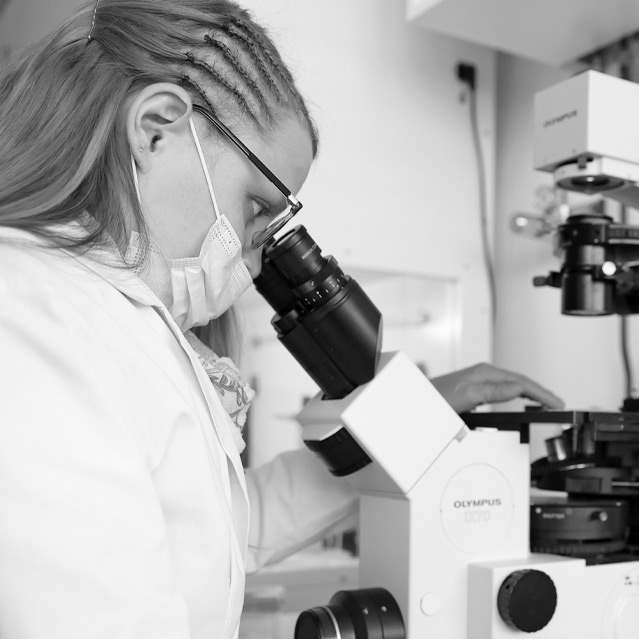Antibody
Discovery
Home » Antibody Discovery

Powerful discovery
process by phage display
We support your race towards novel and better immunotherapeutics with our ultra-fast YUMAB® technology platform that combines efficient phage display, careful in vitro selection, high throughput screening and comprehensive validation.
This powerful and rapid discovery process delivers antibody leads with pre-designed properties and maximum developability.
Target
Animal-derived
antibody
Hit
discovery
Antibody
Hits
Lead
Discovery
Early lead
candidates
Lead
Development
Final lead
candidates
YUMAB’s 3 Steps fast track
from target to lead
Step 1:
Hit Discovery – Start with the right foundation
Within weeks, we identify unique antibody hits that are specific to your target with broad epitope coverage and robust binding properties in your designated assay.
To optimize the search in this crucial first step, we use our large universal human germline libraries for direct, targeted in vitro selection on target molecules and/or cells. The following high-throughput screening identifies a matching panel of hits.
- Selection of antibodies from our ready-to-use universal human antibody libraries and/or custom libraries derived from immunized animals
- Any target antigen, ranging from hapten to complex multipass transmembrane proteins displayed on living cells
- Hit selection with pre-designed antigen binding properties and functionalities
Step 2:
Lead Engineering – In vitro evolution of binding parameters.
In the next step, we can generate early lead candidates for therapeutic development by optimizing the clinically relevant antibody binding characteristics such as affinity, stability, specificity, and selectivity if desired or needed.
At YUMAB, we offer AI-assisted rational mutagenesis combined with in-vitro evolution technologies to increase the diversity of antibody hits, thereby maximizing the pool of potential matches with improved features.
- Broad lead panel
- Improved binding characteristics
- Functional varieties
This powerful technology platform is also part of YUMAB’s antibody engineering services that we offer for the optimization of already existing antibodies.
Step 3
Lead Development – optimize for clinical use
Our goal in this final step is to deliver lead candidates with optimized developability scores for cell line development.
By using our AI-assisted YUcare in silico sequence optimization tool, we are able to further optimize the developability characteristics of your antibody. This approach is not only time- and cost-saving but also guarantees a high success rate.
We then produce and test the selection of ‘polished’ antibodies in their final format to confirm functionality and manufacturability.
Taking care of developability with YUcare.
YUMAB Case Study
YUMAB collaboration with Enthera Pharmaceuticals
New hope for patients with
gastrointestinal immune diseases
“With their expertise and technological capabilities, team YUMAB has been the right match for the successful development of Ent001. Always tuned to our needs they guided us through the process, saving time and clearing the path for a first-in-class IBD drug candidate.”